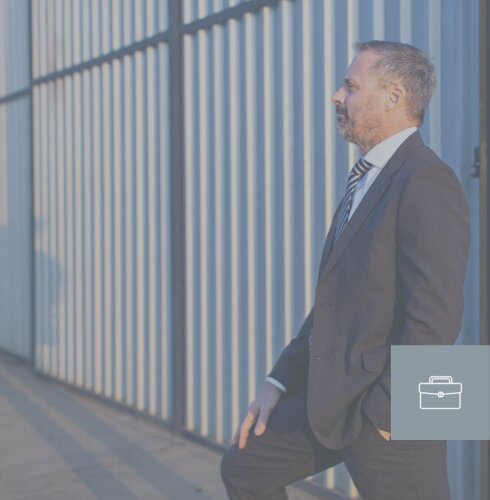Best Foreclosure Lawyers in Worcester
Share your needs with us, get contacted by law firms.
Free. Takes 2 min.
Free Guide to Hiring a Real Estate Lawyer
List of the best lawyers in Worcester, South Africa
About Foreclosure Law in Worcester, South Africa
In Worcester, South Africa, foreclosure is a legal process through which a lender seeks to recover the balance of a loan from a borrower who has stopped making payments. This process involves the forced sale of the asset, usually a home, which was used as collateral for the loan. The legal system in South Africa is complex and follows specific procedures to ensure that all parties' rights are respected during foreclosure proceedings. Foreclosures can be a lengthy and stressful ordeal, often requiring legal expertise to navigate effectively.
Why You May Need a Lawyer
Foreclosure is a multifaceted process that can be overwhelming for homeowners. Here are common situations where legal help is necessary:
- Understanding complex legal documents and foreclosure notices that are often filled with legal jargon.
- Negotiating with lenders to explore options like loan modification or restructuring to avoid foreclosure.
- Defending against what might be an unlawful or incorrect foreclosure procedure initiated by the lender.
- Ensuring that all procedural rules are followed, which can impact the validity of the foreclosure.
- Exploring alternatives to foreclosure, such as selling the property or filing for bankruptcy.
Local Laws Overview
The foreclosure process in Worcester, South Africa, involves several laws including the National Credit Act, which regulates the credit industry, and the Insolvency Act, which can impact individuals facing financial difficulties. Key aspects that are particularly relevant include:
- The requirement for credit providers to adhere to specific procedures before seizing assets.
- The borrower’s right to receive detailed information regarding the outstanding debt and foreclosure proceedings.
- The timeline and notification processes that must be followed to initiate a foreclosure.
- The role of the courts in overseeing the sale of the property to ensure fairness.
- Possible defenses that can be raised by borrowers to challenge incorrect foreclosure proceedings.
Frequently Asked Questions
What is foreclosure?
Foreclosure is the legal process by which a lender seeks to reclaim possession of a property due to the borrower's failure to make mortgage payments.
How does the foreclosure process begin?
The process usually begins when the borrower defaults on their loan payments, and the lender issues a notice indicating their intention to begin foreclosure proceedings.
Are there alternatives to foreclosure?
Yes, alternatives can include negotiating a loan modification, entering into a repayment plan, or arranging a short sale.
What happens if a foreclosure goes to court?
If a foreclosure case reaches court, a judge will typically decide if the lender has the right to proceed based on the evidence and compliance with legal requirements.
Can foreclosure be stopped once it has started?
It can be stopped if the borrower is able to settle the arrears, or successfully negotiates a loan modification or other alternative resolution with the lender.
How long does the foreclosure process take?
The duration can vary, but it usually takes several months from the first missed payment to the final sale of the property, depending on court backlogs and procedures.
Is it possible to remain in the home after foreclosure begins?
Yes, borrowers typically remain in their homes until the foreclosure process is completed, which includes the auction and sale of the property.
What fees are involved in the foreclosure process?
There are legal and administrative fees, which can vary significantly based on the complexity of the case and the route the foreclosure takes.
How is foreclosure avoided?
Maintaining regular communication with the lender and seeking legal counsel early can help explore viable options to prevent foreclosure.
What rights do homeowners have during foreclosure?
Homeowners have the right to receive proper notification of the foreclosure, challenge the proceedings in court, and receive any excess proceeds from the sale after the debt is settled.
Additional Resources
For those in need of assistance or information regarding foreclosure, the following resources can be helpful:
- The Legal Aid South Africa offers support and guidance for those unable to afford a lawyer.
- The National Credit Regulator provides information on the rights of borrowers under the National Credit Act.
- Local community organizations and housing advocates may offer counseling and support for homeowners facing foreclosure.
Next Steps
For individuals facing foreclosure in Worcester, South Africa, it is vital to take prompt action. Consider the following steps:
- Review all foreclosure notices and gather all relevant documentation.
- Consult with a legal professional who specializes in foreclosure to understand your rights and options.
- Keep communication lines open with your lender to explore possible resolutions or loan modifications.
- Explore community resources and support systems for additional assistance.
- Stay informed about local foreclosures and property auctions to understand market conditions and potential impacts.
Timely legal advice can significantly impact the outcome of a foreclosure situation, making professional guidance essential for navigating the process successfully.
Lawzana helps you find the best lawyers and law firms in Worcester through a curated and pre-screened list of qualified legal professionals. Our platform offers rankings and detailed profiles of attorneys and law firms, allowing you to compare based on practice areas, including Foreclosure, experience, and client feedback.
Each profile includes a description of the firm's areas of practice, client reviews, team members and partners, year of establishment, spoken languages, office locations, contact information, social media presence, and any published articles or resources. Most firms on our platform speak English and are experienced in both local and international legal matters.
Get a quote from top-rated law firms in Worcester, South Africa — quickly, securely, and without unnecessary hassle.
Disclaimer:
The information provided on this page is for general informational purposes only and does not constitute legal advice. While we strive to ensure the accuracy and relevance of the content, legal information may change over time, and interpretations of the law can vary. You should always consult with a qualified legal professional for advice specific to your situation.
We disclaim all liability for actions taken or not taken based on the content of this page. If you believe any information is incorrect or outdated, please contact us, and we will review and update it where appropriate.










